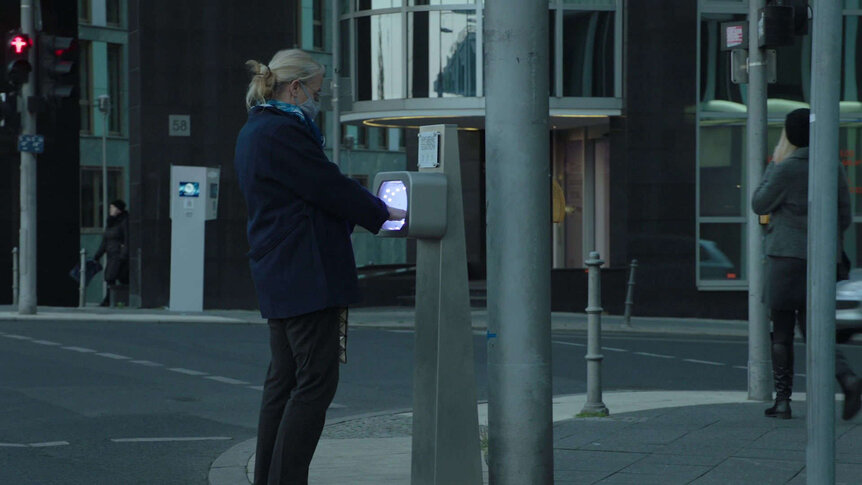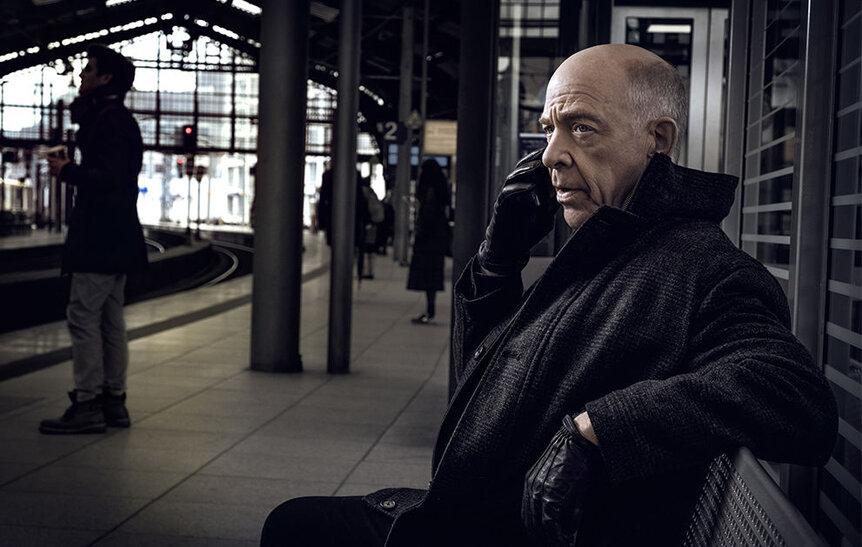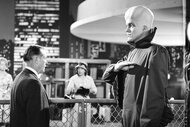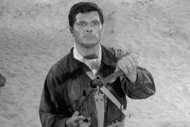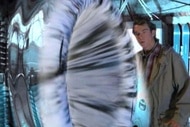Create a free profile to get unlimited access to exclusive videos, sweepstakes, and more!
Starz's Counterpart offered a rare look at a fully realized post-pandemic world
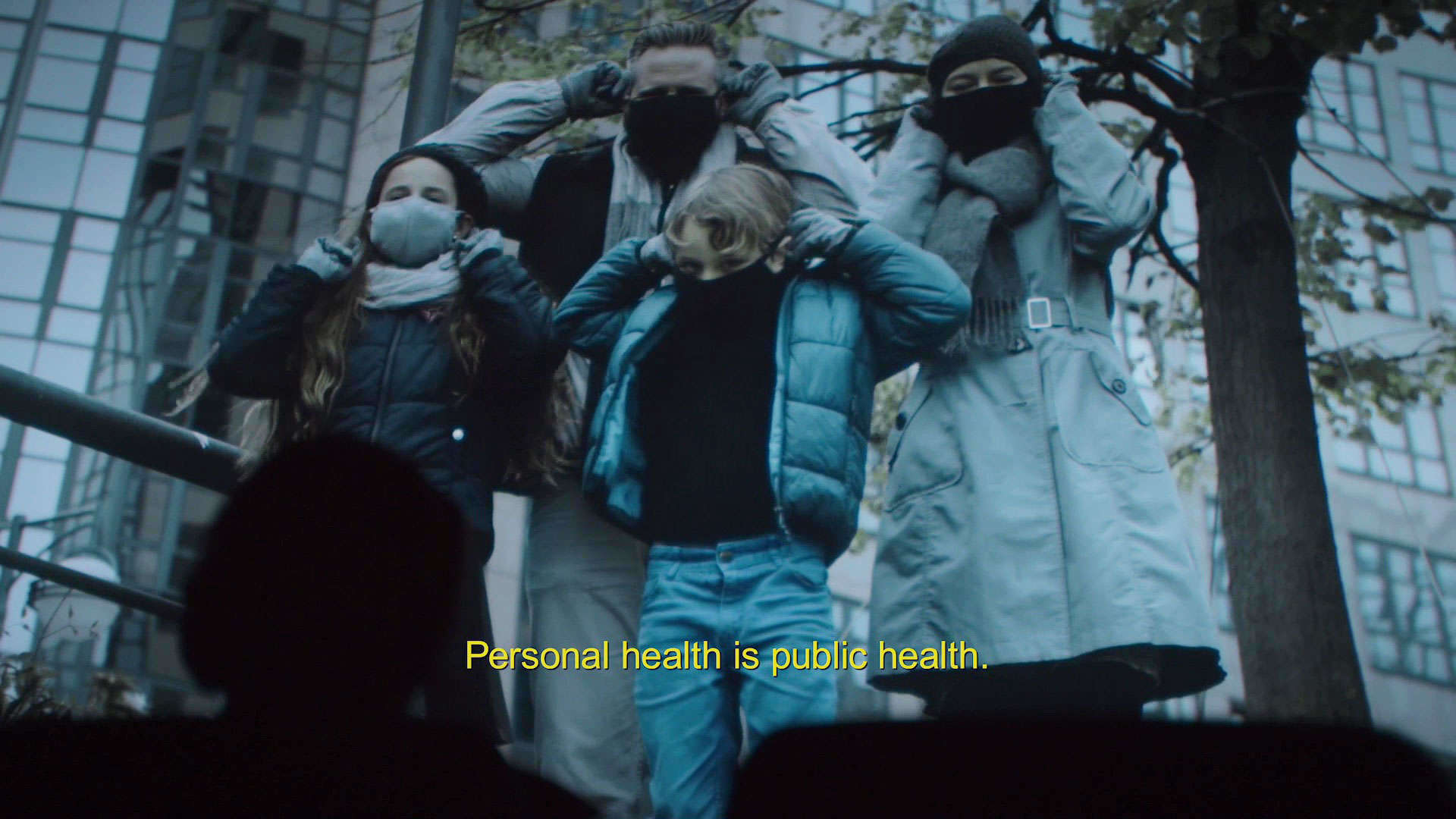
We’ve seen pandemics bring an end to the world as we know it. It happens all the time in post-apocalyptic fiction. The Stand, Station Eleven, and pretty much every zombie movie have all shown us frightening visions of a viral apocalypse. What we don’t see much of, however, is fictional versions of a reality that’s recovered from a devastating pandemic — a society that has changed, for sure, but is still recognizable as our own. As we wait and wonder when our real lives will go back to “normal” after the COVID-19 pandemic is over (and what the new normal might be), the Starz series Counterpart has a new, special significance. It’s a show about spycraft and sci-fi, but more than anything, it’s a series about “what-ifs,” and its depiction of a post-pandemic society is an especially relevant possibility.
Counterpart, which ran for two seasons on Starz before becoming available on Amazon Prime earlier this year, where it enjoyed a bit of a second life, is about espionage between two parallel universes. Thirty years before the events of the series, something happened in Berlin that created a parallel universe, and in the decades since, the two realities have changed and evolved in different ways. The biggest difference between Dimension Two and our own Dimension One is that, in the '90s, a deadly flu killed 7 percent of the world’s population. In the present day, Dimension Two has recovered from the pandemic, but it left a major impression.
“We were honestly just looking for a very simple break between our worlds,” Counterpart showrunner Justin Marks tells SYFY WIRE, explaining that he and the writers worked with the non-profit Science & Entertainment Exchange to make their fictional pandemic feel realistic. The show’s flu, which spread from swine to humans and was rumored to be a biological attack on Dimension Two by our own reality, certainly makes Counterpart’s alternate Earth feel different. It seems emptier, more Spartan, and, at first blush, colder than our world. It’s the East Germany to our West Germany, keeping with the metaphysical Berlin Wall at the core of the sci-fi espionage show.
When protagonist Howard Silk (J.K. Simmons) first travels to Dimension Two, swapping places with the double-agent alternate version of himself (also J.K. Simmons), viewers see comparatively desolate streets. Billboards and PSAs remind residents that it’s illegal not to seek treatment if one suspects they’re sick, and failing to report someone for being sick is a crime. People wear masks and handshaking is a thing of the past. It’s not quite dystopian, but it seems a little grim.
As the series progresses and we learn more about the other side, though, we get a fuller picture of what a post-pandemic society looks like.
“We were really struck by some of the silver lining possibilities of what a society after a pandemic might look like,” Marks says.
“We didn't see the other side, the post-pandemic world as the worse place to live,” he continues. “It was in most ways the best place to live because it was a place where people had come to terms, come to grips with their own mortality in their own consciousness of their presence within a community.”
Dimension Two’s healthcare system is, as you might expect, exemplary, boasting a strong socialized system that Marks notes would probably be helpful for real-life Americans to have right now. Many more people work within the medical system in Dimension Two because, Marks explains “we wanted to show a civilization that had taken on new priorities, and I'm hopeful that maybe ours will too.”
Technology in this post-pandemic world looks different than ours does, as well. Touchscreens aren’t common, as designers had shied away from tactile objects that could be disease vectors. Voice-activated phone booths — which aren’t actually enclosed booths, as that could spread disease — are instead the norm.
“They don't have smartphones because we just decided that Apple did not take off to become the company that it is, because of their pandemic in the '90s,” Marks says. “But what we didn't want to say was that their technology was regressed relative to ours, simply that it had gone down a different branch of a tree and advanced at the same kind of rate just, with their own needs.”
Culture has changed, too. For a major city, Berlin seems underpopulated, which Marks says isn’t an indication of all the people who died during the pandemic, but a tell that people still, decades later, are afraid to live in cities. Restaurants aren’t crowded and we see an old, emptied-out movie theater in one episode, the implication being that it’s not unique.
“As a lover of cinema, I don't want to see it,” Marks says. “But at a certain point [even years after the pandemic], the culture shifts and changes and people have new ideas of what they want for entertainment... After over a decade of a pandemic, they just decided maybe collective experiences like that aren't right for them.”
(While this makes for gripping, effective worldbuilding, Marks admits that the emptiness and loneliness of Dimension Two made plotting some of the espionage tricky. “A spy show where people are blending into crowds and following people on the other side — it's not so easy,” he says.)
Counterpart was canceled in February of last year, and Marks says he had already mostly said goodbye to the series when, a few months ago, it became relevant again in a new, poignant way.
“At the end of the day, Counterpart was a show about looking at versions of our lives unlived,” Marks says. “This whole year is going to have gone by, and it will all have been, in my mind, wasted. Tragic human life that's been wasted, but also wasted in that we've all been robbed of this experience.
“I found myself kind of thinking, 'What is that alternate reality where, you know, things were going just fine?’” he continues. “Truly the whole world has been robbed of something that belongs to us, which is time. I can only imagine what would have been on the other side, with that time back.”
